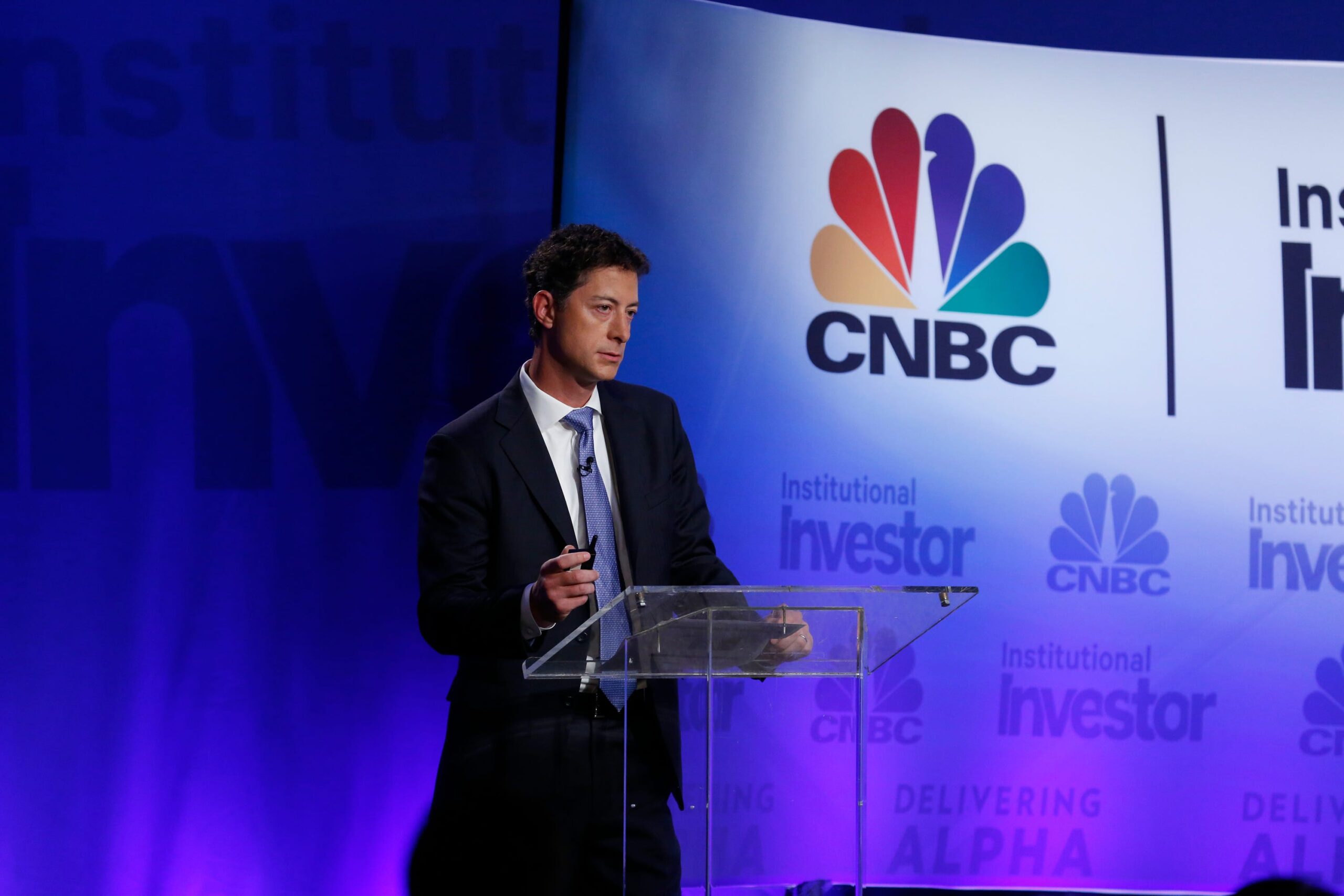: Heidi Gutman/CNBC/NBCU Photo Bank
- Starboard Value has taken a $1 billion stake in drugmaker Pfizer.
- The hedge fund, headed by Jeff Smith, has become one of the most feared activist investors.
- Starboard has doubled its assets over the past decade targeting companies across industries.
Pharmaceuticals giant Pfizer got a wake up call Sunday evening when one of Wall Street’s most feared activist investors revealed a stake in the company.
Starboard Value informed the drugmaker it had taken a position in the firm valued at $1 billion.
An activist’s aims, whether that’s pushing for breakup, M&A, or cost reductions, vary depending on the target. Starboard’s turnaround strategy is not yet clear, but Pfizer’s share price and revenues have tumbled from the record highs achieved during the pandemic’s heights, and Starboard, led by its 52-year-old cofounder Jeff Smith, has a long history of wielding minority stakes to extract board seats and profits from name-brand companies.
Over the past decade, Smith has more than doubled the hedge fund’s assets under management to $8.5 billion by taking on targets including Salesforce, Starbucks, and the owner of Olive Garden. In that time Starboard has gained a reputation for making life uncomfortable for — and sometimes jettisoning — executives and directors who resist his overtures for change.
Pfizer, with a market cap north of $160 billion, is among the largest companies Starboard’s Smith has ever targeted. Still, investors seemed to applaud news of its investments on Monday, sending Pfizer’s stock up about 3% in morning trading, adding nearly $5 billion to the company’s market cap.
Moreover, Starboard has reportedly secured support from former Pfizer executives Ian Read and Frank D’Amelio for its campaign.
Starboard has experience across the spectrum but is especially good at instilling discipline at the board level and “improving margins and cutting costs at companies that are bloated,” said Ken Squire, the founder and president of 13D Monitor, a research firm specializing in shareholder activism.
Starboard declined to comment.
Who is Jeff Smith?
Investor activism has exploded in recent years. The 147 new campaigns globally in the first half of 2024 is a record, building on the all-time high 252 campaigns reached in 2023, according to a July report from investment bank Lazard.
Starboard has become one of the most formidable names in the business, even if Smith hasn’t yet reached the name recognition of activist investors like Paul Singer (Elliott Management), Carl Icahn (Icahn Enterprises), and Dan Loeb (Third Point Capital).
Smith launched Starboard in 2011, spinning it out of a small unit at Cowen Group along with a couple of partners, including Peter Feld. Early targets included AOL, where Starboard lost a proxy battle but agitated for changes that boosted the company’s stock by 250%, and Office Depot, where Starboard won three board seats, according to a 2014 story in Fortune.
Starboard put corporate America on notice with its campaign in 2013 against Darden Restaurants, the owner of Olive Garden and Longhorn Steakhouse, among other dining chains. With less than a 10% stake Smith replaced the entire 12-person board and assumed the role of chairman. By the time Smith stepped down in 2016, Darden stock had gained nearly 50% and Starboard had accrued more than $500 million in profits.
One of the hedge fund’s greatest claims to fame involved its improvements to Olive Garden’s breadsticks, which Starboard predicted could save the company up to $5 million a year, according to a Wall Street Journal report from 2015.
In 2022, Starboard took a stake in software giant Salesforce, urging the company to cut costs and improve margins. The company’s shares have nearly doubled in the two years since.
Brontë Wittpenn/San Francisco Chronicle via Getty Images
Starboard’s record isn’t without blemishes. Its campaign against meat processor Smithfield Foods in 2013 fizzled. The hedge fund lost a proxy battle with software maker Box in 2021. And in 2019 it dropped a bid to have Bristol-Myers Squibb scrap its merger with Celgene after failing to win over two major proxy advisory firms.
In total, Starboard has initiated 151 activist campaigns, which have generated an average return of 25%, according to data from 13D Monitor.
Ignore at your peril
More recently, the hedge fund has taken positions in dating app owner Match Group, software company Autodesk, and Starbucks.
Squire said Smith has a reputation as intense but intelligent and candid. Starboard “can be friendly, but if they’re ignored they can also be feared — and they can get tough.”
In August, Starbucks replaced its CEO amid a campaign from Starboard and Elliott Management.
Given Smith’s record of winning corporate concessions — or prying them away by force — Pfizer CEO Albert Bourla may be next in the hot seat. Bourla took over in 2019 and guided the drugmaker through the pandemic, boosting annual revenues to $100 billion in 2022 thanks to sales of its COVID-19 vaccine and the antiviral treatment Paxlovid.
But missteps ensued. Pfizer misjudged future demand for COVID remedies, according to a WSJ report, and revenues cratered. It has since undertaken multibillion-dollar cost cutting campaigns.
For its next act, Pfizer executives wagered heavily on cancer treatments. It shelled out $43 billion last year to acquire Seagen, a Washington-based biotech company focused on developing novel cancer medicines. It expects Seagen’s products to yield $3.1 billion in revenue this year and $10 billion in annual revenues by 2030.
Still, its share price has fallen more than 50% since reaching an all-time high in December 2021.
Starboard’s targets cut across industries, including 23 campaigns in the healthcare sector, according to 13D Monitor. Besides Bristol-Myers Squibb, other prior targets include CVS and medical records and technology company Cerner.
Pfizer did not respond to a request for comment.











